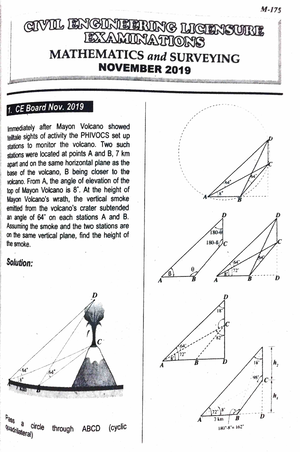- Information
- AI Chat
Was this document helpful?
OFW Interview
Course: Civil Engineering
999+ Documents
Students shared 2987 documents in this course
University: Bicol University
Was this document helpful?

Questions:
1. What are the positive and negative implications of working overseas?
Working overseas gives access to certain opportunities, especially career-wise, that are
either too limited, exclusive, or not available locally. It also allows a person to explore
and learn about different cultures & issues. Thus, it enables one to grow more globally
and socially aware and to become familiar in different ways of life. Furthermore, it gives
the person the chance to expand their network.
On the other hand, working overseas, especially alone, poses as a challenge to the
person's mental health and relationships. Working abroad means adapting — which is
no easy feat especially when dealing with language barriers and culture differences.
Also, it takes time to build social circles in unfamiliar places, hence, its common for
OFWs to feel loneliness and isolation. Moreover, relationships — especially with the
family and friends left behind — tend to get strained due to missed important events,
lack of communication, time differences, etc.
2. How are the family dynamics affected when a family member work overseas?
When a family member works overseas, one member of the family tends to assume the
role of the former. If a mother goes abroad, the eldest sibling tends to mother the
younger ones. Moreover, members left behind tend to feel abandoned and eventually
estranged from the member who works overseas. Some members of the family might
even grow up feeling no connection or rapport whatsoever.
3. What are the challenges that OFWs face in adapting to foreign cultures?
Language, culture differences, lifestyle, and the constant feeling of not belonging.
4. Do the opportunities in working overseas outweigh the challenges that OFWs face?
Rather than outweigh, I think it is safer to assume that they lack of viable options. An
OFW often faces the choice of "maghihirap ka sa ibang bansa o magugutom kayong
buong pamilya". One is an obvious doom to the family, while one offers a way out. There
is not much choice to be made. A lot of them would rather stay here in the Philippines if
given the chance.
5. Can exporting labor be considered as the country's comparative advantage?
Yes, the Philippines is claimed to be a labor rich country. We export a lot of people with
talent, potential, dedication, and perseverance. A lot of them have enough background
and training — they simply have no room to grow due to lack of opportunities here. We
also earn a lot of money from what the OFWs send back.










